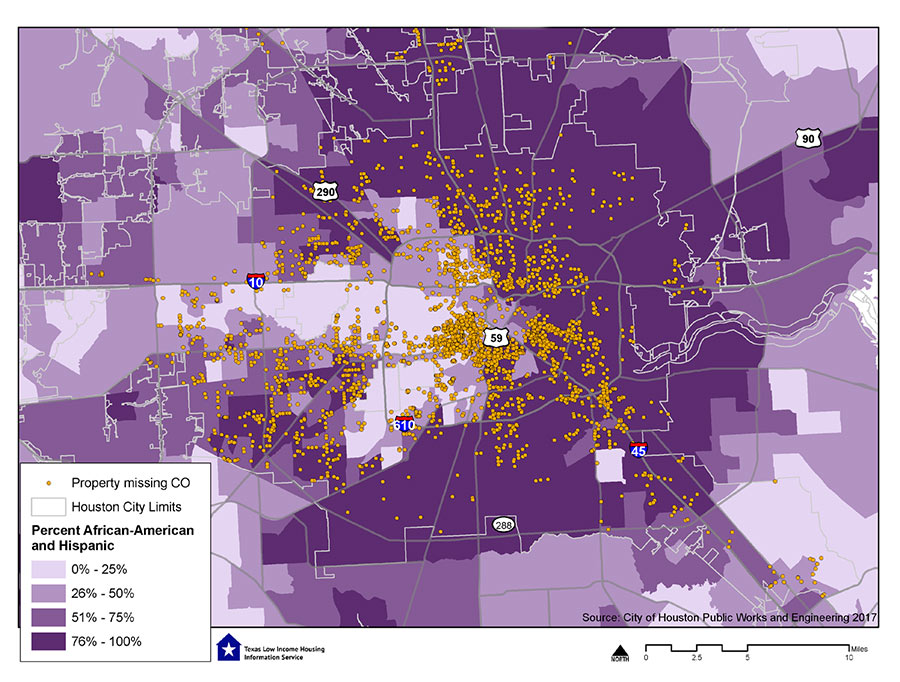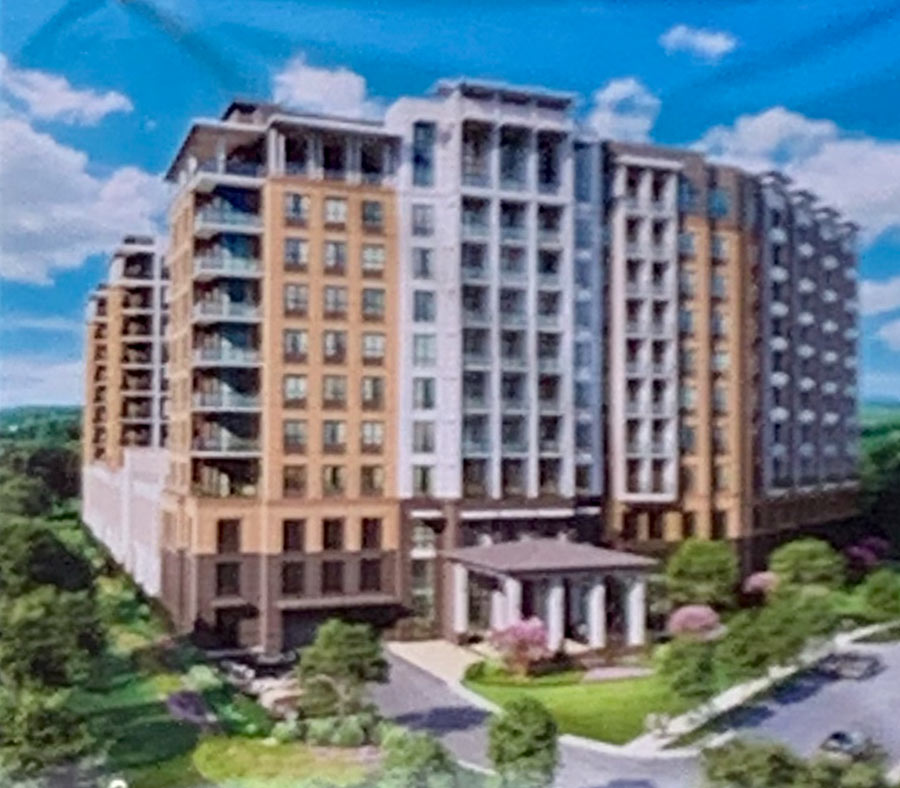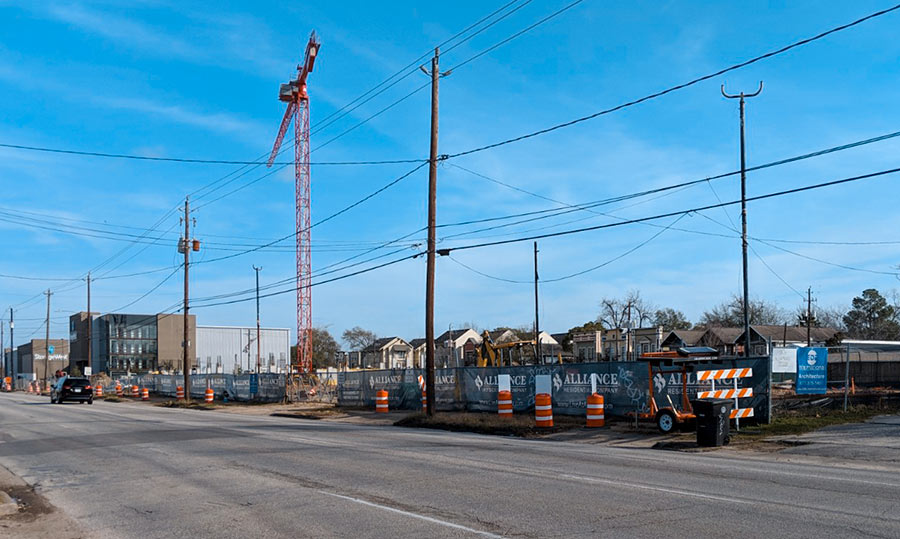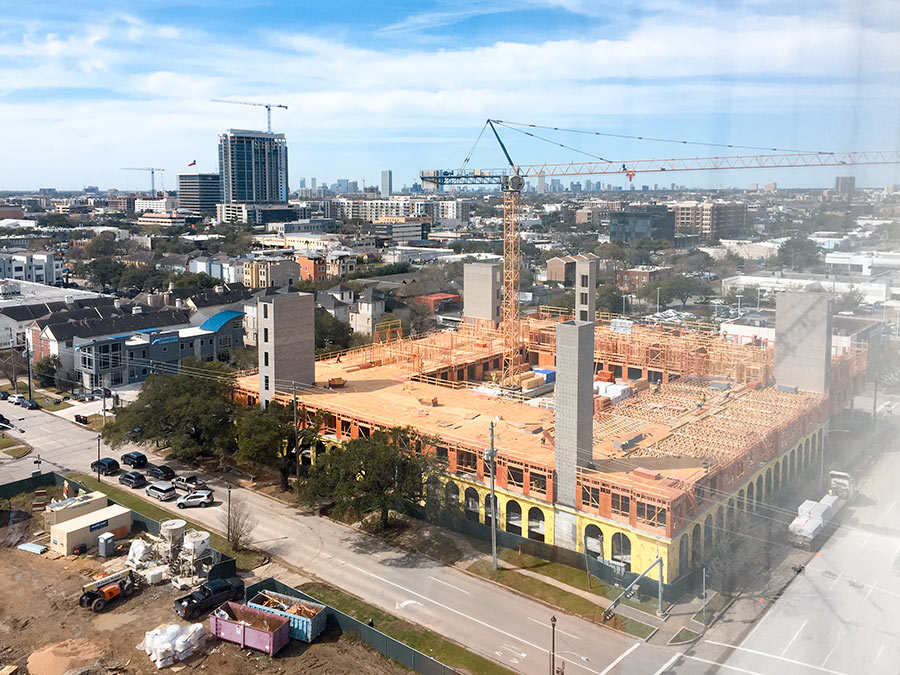UT STUDY: HOUSTON SUFFERING FROM EPIDEMIC OF DILAPIDATED APARTMENTS  A new study from the University of Texas School of Law says that Houston is full of deteriorating apartments, has weak building standards, does a bad job enforcing its own rules, responds slowly to residents who seek help with unsafe homes, fails to keep track of its own building data, and struggles to communicate clearly between departments overseeing different aspects of safety. Houston has the third highest number of occupied apartments in any U.S. city — but of all the complexes in the city, nearly a third are missing Certificates of Occupancy, according to the researchers. The yellow dots on the map above indicate the 1,000-plus multifamily structures that lack the document, which certifies that a building has passed a basic inspection for structural, electrical, mechanical, and plumbing issues. On top of that, the city only employs 2 health inspectors to check for sanitation problems like bedbugs, rodents, mold, and sewage leaks inside Houston’s 320,000 occupied rental units. “In summary,” says the study, “the City of Houston is operating a largely dysfunctional system for addressing tenant safety that appears to have little or no oversight by city leaders.“ [UT School of Law Entrepreneurship and Community Clinic; more info] Map of multifamily properties without Certificates of Occupancy as of July 2017: Texas Low Income Housing Information Service
A new study from the University of Texas School of Law says that Houston is full of deteriorating apartments, has weak building standards, does a bad job enforcing its own rules, responds slowly to residents who seek help with unsafe homes, fails to keep track of its own building data, and struggles to communicate clearly between departments overseeing different aspects of safety. Houston has the third highest number of occupied apartments in any U.S. city — but of all the complexes in the city, nearly a third are missing Certificates of Occupancy, according to the researchers. The yellow dots on the map above indicate the 1,000-plus multifamily structures that lack the document, which certifies that a building has passed a basic inspection for structural, electrical, mechanical, and plumbing issues. On top of that, the city only employs 2 health inspectors to check for sanitation problems like bedbugs, rodents, mold, and sewage leaks inside Houston’s 320,000 occupied rental units. “In summary,” says the study, “the City of Houston is operating a largely dysfunctional system for addressing tenant safety that appears to have little or no oversight by city leaders.“ [UT School of Law Entrepreneurship and Community Clinic; more info] Map of multifamily properties without Certificates of Occupancy as of July 2017: Texas Low Income Housing Information Service





This is a feature or a bug, depending on how you look at it. You can have building ordinances that are strictly enforced but that likely will result in fewer and more expensive rental units. Or, you can have what we have, with plenty of cheap housing for those trying to get a leg up in life. Nobody is forced to live in any of those units.
@Jardinero1 . you are correct , only now rents are rising here and affordable housing stock is declining. There is nothing to stop slum lords from raising rental rates right along with the legitimate and permitted property owners
“Nobody is forced to live in any of those units”
.
Because life is black and white? Point noted, but you have to acknowledge all the nuances at play here that quickly contradict such an overly simplistic statement.
.
One thing is for sure. The city not playing it’s role and doing it’s due diligence forces residents to assume the responsibility. Alright if you’re a stable family. Not so alright if you’re disabled, elderly, single parent household, etc. etc. What is a given is that dumping code enforcement onto residents is ineffective, inefficient and wasteful. I’m not sure economics gets much simpler. Even someone proposing deficit financed tax cuts at the height of an economic cycle could understand this.
.
The more stable and higher quality people’s housing is then the more they can contribute towards the regions productivity. It’s not about raising the price for all, but ensuring that everyone gets a fair deal. Lack of code enforcement puts a cap on the tax base if not leads to outright deterioration thereof.
UT needs to be concerned with decontaminating that $350 million lot they bought in south Houston. I’m sure there are thousands of student volunteers in Austin that can help clean it up.
Cody, I’d like to see what a guy in the field thinks. Not taking sides. Just want an opinion from someone in the trenches.
All the more affordable for ALL the ex-cons that the Texas Department of Corrections sends to Houston instead of where they were picked up. Time for a change in Austin.
I’m all for laissez-faire economics when it is pretty time-efficient in taking care of things: for example, retail prices move pretty quickly due to competition since customers can quickly move from Walmart to Kroger to buy onions.
.
When it comes to housing, it isn’t as easy to make a quick change: you have to end a lease, search for a suitable place (location, price, size), pack stuff up, move utilities, and maybe change school for the kids. A lot of uprooting for a change in housing. More hassle so people are a bit more tolerant of less-than-optimal housing.
.
So, this may be a situation where city government should really be earning its keep: by vigorous inspection of rental units. Having 2 health inspectors for sanitation issues on 320,000 units is just laughable. If I were one of those inspectors, I’d find my job so disheartening since it is like fighting the tide. Now that I think of it, if we can only have 2 inspectors, why bother at all? Just put them on restaurant inspection duty.
Damn I love that arrow. It’s always there.
No question that these are some rough looking apartments. It’s obvious that there is deferred maintenance and neglect. So, the obvious solution is for the City to inspect and require remediation of unsafe and substandard conditions, right?
I don’t think it’s that simple. You have to ask the question: where does the money come from to rehabilitate these apartments. It’s clear the owners are not investing a lot of money in the apartments, but less clear is how much money they are making off of them. My guess is that it’s not much. So, how does the owner pay for this?
Ok, maybe you expect the owner to pay for the renovation out of his own personal funds. Let’s go with that for a minute. What if he or she refuses? Would these residents be better off if the landlords closed up shop? Just shut the place down instead of renovating them to the City’s standard? What if the owner doesn’t have the money? How is this paid for?
It’s a sad situation all around, but it’s not as simple as the report makes it seem.
Or, in other words, “Houston suffering from affordable apartments”.
.
It’s super easy to buy some old junker apartment building, fix it up, and raise the rents. People do it all the time. The tenants move out of the now-nice apartment and find something they can afford.
.
Some have this Utopian ideal of all apartments meeting some standard that’s set by the government that may not reflect the reality of what the supply and demand out there produces.
.
And no, before people claim, I don’t think people should live in shitholes (is that racist to say now?). I just think that people chose to live in crappy apartments because of all the housing options available to them, that’s the best one. And apartments do not get improved without a corresponding raise in rent. So you’re now forcing someone to pay more for a nicer place when they’ve already voted with their wallet to pay less to live in a dumpy place.
.
But hey, it makes you feel good about yourself for “helping” someone.
“There is nothing to stop slum lords from raising rental rates right along with the legitimate and permitted property owners”
.
Yes there is. The free market. If you have a slum and you charge $400/month, and the slum next to you is fixed up and has done all the city bells and whistles and now charges $500/month because it’s nicer, the $400 place can’t just also charge $500 as they’d have no tenants. No one would live in the worse place for the same money.
.
Bad properties exist and say full because they’re able to compete on price. I see this constantly .
@Wolf Brand Chili
Exactly. The housing market is not frictionless, where people can just flow from one place to another. Moving is time-consuming and either expensive (if you pay movers) or physically demanding (if you do it yourself).
In some cases, residents have lived in these neglected apartments for decades. The apartment may have been in much better shape when they moved in. Lack of enforcement of basic building/maintenance standards means that residents are forced to choose between breaking their lease and/or moving; or just living in a state of disrepair.
There is also the small matter that the TAA standard lease states that the landlord is required maintain the property. It’s generally quite easy for the landlord to enforce a lease agreement in the event of non-payment. This study seems to suggest that the mechanisms for holding landlords accountable for their side of the contract are much less robust.
It’s easy to invoke free market principles when something bad and theoretically avoidable happens to someone else, but I wonder how many of our free market evangelists would object if, for instance, the government stopped regulating the makeup of gasoline that you buy at the pump?
Don’t like the gas? Oh, just go to a different station where the gas is good. What, it ruined your engine? Well, just file a claim and get in line!
@Wolfbrand Chili: I would very much like the government to stop regulating the makeup of gasoline at the pump. Gasoline is much more expensive than it needs to be because of government mandates. The quality of gasoline also suffers, ethanol as an additive being just one example. Auto manufacturers and refiners can agree on a standard without the government stepping in.
Jardiner01: I think you have me confused with CO’s clearly absurdist example of leaving gasoline composition to market forces. So, you’re trolling may need to be directed to him/her.
.
P.S. CO’s example is spot-on correct.
@WolfBrand, Thank you for clarifying he mixup. Nobody’s trolling. I think that the refiners and the auto industry can set their own standards and we would all be better off.